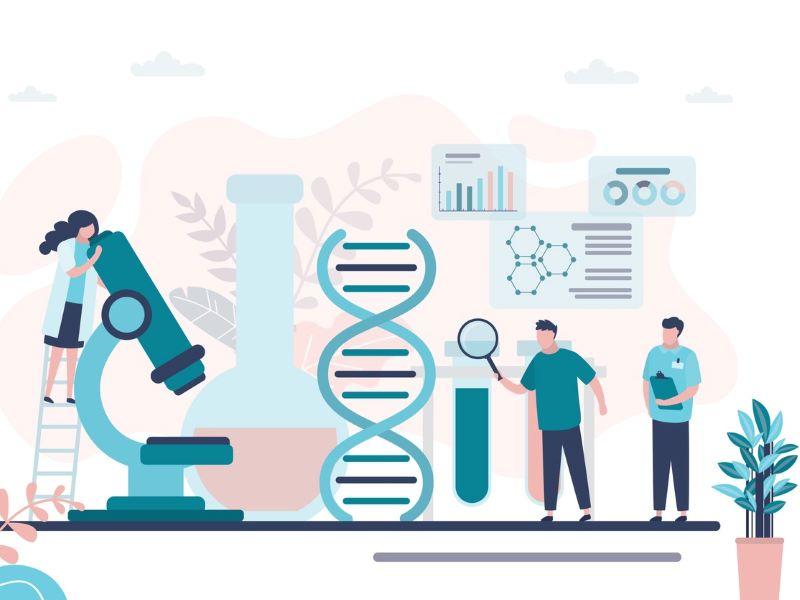
Amplifying research: five features of successful impact generation
As UK universities await the results of REF2021 and a new cycle of impact generation starts, how can academics go about amplifying the impact of their research? Charlotte Humma and Tessa Russell share tips
Research management
Sponsored by
Elsevier helps researchers and healthcare professionals advance science and improve health outcomes for the benefit of society.

Engaged scholarship can take a wide range of forms, such as consultancy, policy engagement or collaborative research. However, through our work supporting REF2021 impact case studies, we’ve witnessed the importance of five key features of successful impact generation:
- strategic communication
- relevance
- relationships
- resonance
- and time.
Communicating research to non-academic audiences is integral to achieving impact. Done right, your research can create “.”
So what is the right way, and how do you do it? While there’s no single right way, some basic elements of a good communications strategy help – a clear aim, an understanding of who your audience is, what they already know and what you think they need to know, how to reach them, and what resources you have at hand.
- Learning the craft of using your research to engage in policy
- Get your research out there: 7 strategies for high-impact science communication
- External engagement in academia: lessons from the business world
It’s good to want to tell the world about your research, but it’s probably unrealistic and unnecessary to think you can tell the whole world.
1. Be strategic with your dissemination
Communications involves a flow of information. It doesn’t happen just once or only in one direction. However, unlike everyday communications, strategic (and effective) communication is always goal-oriented. Consider why you want to tell people about your research. Ask yourself:
- what is the problem?
- what is your specific contribution to that issue?
- what do you want to achieve by communicating your research?
- what does success look like?
The answers to these questions will help identify who to target with your communications. This may include those who have the interest and the power to do something with the information, and those who can help you reach those audiences or can use your research to influence, inform or directly make a change.
Being strategic doesn’t mean focusing on just one stakeholder, or even one group of stakeholders. You will probably want to target different audiences in different ways. It’s about understanding which types of engagement will reach specific audiences most effectively.
There are several benefits of thinking about research communications in this way. Rather than trying to “get the message out there”, you have a better idea of what to communicate, to whom, how and when. Having considered what the problem is, you won’t just criticise – you should also have a clear point to make or solution to offer.
Many issues are too complex for simple solutions, and your research alone is unlikely to offer an “oven-ready” or “silver bullet” solution. However, you can highlight relevant information, issues or perspectives that might otherwise be overlooked; provide stakeholders with the evidence or case study examples they need to make better informed decisions and policies; or advocate for further clarity into an issue.
Strategically communicating research may help you along the path of engaged scholarship and generating impact, as well as undoubtedly saving you time.
2. R����𱹲��Գ���
Successful impact generation comes from identifying an issue and understanding it from different stakeholders’ perspectives so that you can conduct and present research that is relevant to them and their contexts. You can do this in myriad ways, from surveys to research collaboration with non-academics. You just need to get your ear to the ground.
Whether you are working on a topic relevant to everyday life, such as parenting, or one that is more on the fringes of people’s concerns, you won’t generate impact unless you understand where the gaps are. Conducting a systematic review can help to identify gaps in research and give you an idea of where current knowledge lies, and thus what needs further investigation.
To ensure relevance, share your ideas widely, consulting with wider networks and working with partners outside academia. This is especially important if your research is focused on hard-to-reach groups or locations, for example in the Global South. In such cases, the importance of understanding local contexts and engaging sensitively with key groups and individuals in the community is paramount. This means being ready to seek meaningful, mutually beneficial collaboration with others who can offer perspectives and networks that you would otherwise be unable to access to ensure that your research is representative and addresses their needs.
3. R������پ��DzԲ����
Building relationships is hugely important but is never easy: you will need to be proactive, and it will take time and effort. In the context of research impact, successful relationships must be two-way, involving an exchange of information. You can integrate knowledge you gain into your research, and your findings can then, in turn, feed into others’ work.
So who should you try to build relationships with? Keep an eye on policy. Submitting evidence to parliamentary inquiries, for example, is a good way to get known. Outside policy, there can be great value in building relationships with journalists, consumer groups and private sector bodies. Think about how to alert people out there to what you’re doing, through webinars, meetings, blogs, briefing papers and social media.
This can be difficult on your own, but with teamwork – including other academics as well as professional services staff – it can be easier to manage, by sharing the load and diversifying your skill base.
4. R����DzԲ��Գ���
Resonance requires both relevance and relationships. To have resonance, your research or knowledge exchange activity will need to provide evidence, information or tools in an accessible and targeted manner that makes a constructive contribution to finding solutions to the issues at hand.
Academics tend to think that you lead with research, disseminate it, and then an impact case happens. This is not the case. What resonates with policymakers and other stakeholders isn’t what works for academics. Policymakers want to know “what the evidence says” overall (rather than your specific contribution) in a simple way and may not care about fancy methodological detail that academic reviewers are concerned about.
Tailor your message to the needs of your audience. Think of ways to explain and illustrate your points in simple terms – such as through giving real-world examples. But be clear on the limits of your research if you’re being pushed for solutions that aren’t yet sufficiently supported by results.
Research communications requires repeated plugging of the same message to different people. Different and novel formats for communicating research and sharing results with non-academic audiences such as blogs, videos, briefing papers and interactive tools can really help.
5. Time and perseverance
Given that academic workloads are already high, consider getting support for engagement and impact. Find out what internal and external support is available. It could be financial, such as grants, that can provide resources for engagement or with staff to support you.
While there are several years until the next REF, whatever form that may take, generating impact from your research should be an important consideration. This is not just for external assessment, but because it can inform and improve research, lead to new opportunities such as secondments or funding, and ultimately create real change in the world.
Charlotte Humma is the research centre and communications manager for the (ESRC) Centre for Inclusive Trade Policy.
Tessa Russell is the assistant manager for impact at the University of Sussex Business School.
This advice draws on the work and expertise of Mari Martiskainen, senior research fellow and co-director of Sussex Energy Group at the University of Sussex Business School; Michael Gasiorek, professor of economics, director of the UK Trade Policy Observatory and co-director for the new ESRC Centre for Inclusive Trade Policy; and Josh Siepel, senior lecturer in management and a workstrand lead at the AHRC Creative Industries Policy Evidence Centre.
If you found this interesting and want advice and insight from academics and university staff delivered direct to your inbox each week, .
Research management
Sponsored by


